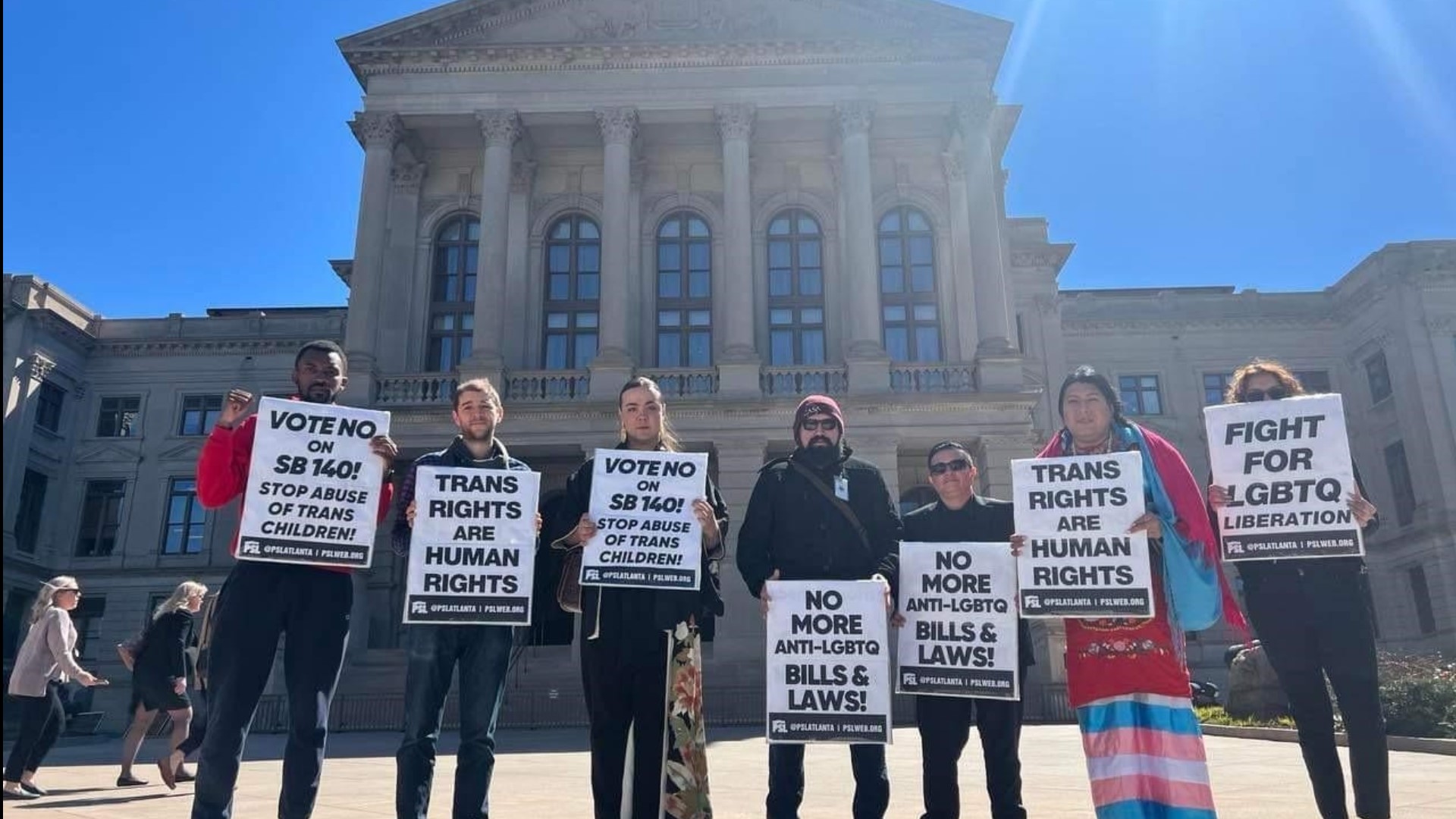ATLANTA — A hearing on a bill crafted to save lives by improving access to overdose-reversal drugs like Narcan took a controversial turn Monday, following an amendment to the bill that would ban the use of puberty blockers for Georgia youth.
The initial bill, H.B. 1170, proposed by Rep. Lee Hawkins (R) would require the overdose-reversal drugs, known as opioid antagonists, in certain government buildings as part of the ongoing effort to tackle the opioid epidemic and save lives. That bill passed the Georgia House almost unanimously in February.
But during a Senate Committee on Health and Human Services meeting Monday, committee chair Sen. Ben Watson (R) presented an amendment which, in essence, he said, outlaws the use of puberty blockers in minors, with limited exceptions. H.B. 1170 passed out of committee as amended via an 8-5 vote.
The move follows the contentious passage last year of S.B. 140, also known as Georgia’s ban on gender-affirming care for minors. The law prevents hospitals and other medical facilities from providing gender reassignment surgery, any surgical procedures designed to alter primary or secondary sexual characteristics and hormone replacement therapy to people younger than 18.
However, among the pillars of gender-affirming care, puberty blockers, which suspend the process of puberty, were not included in that ban and are still legal for minors under current state law. Sen. Watson remarked Monday that “upon reflection,” he’s proposing that puberty blockers for youth also be outlawed in Georgia.
“But what the data is showing is that puberty blockers are being used, really almost exclusively when they are used, (youth) go on to a sex change operation or surgery or sex change hormones,” he said. “If they are not used, the data shows that about 50 percent are electing not to pursue that."
“So you're leaving 50 percent of the children on the table, and they are being forced to go through a puberty that does not align,” Sen. Kim Jackson (D-41) rebutted.
In August, the American Academy of Pediatrics reaffirmed support for gender-affirming care for transgender children, including the use of puberty blockers.
In Monday's hearing, a pediatrician, Dr. Michelle Zeanah, countered that position and spoke in favor of a state ban.
“If a child with gender dysphoria decides they would like to change from their biological sex after they are 18, they have a lot more ability to make a well thought out decision as an 18-year-old than they do as a 12-year-old,” Zeanah said.
Throughout testimony, Georgia Senate Democrats raised multiple objections, claiming no chance for the other side to present opposing views or data. Only supporters of the ban spoke during Monday’s hearing.
“None of us were expecting this particular bill, especially the part we've been talking about with the puberty blockers,” Sen. Sonya Halpern (D), who made a motion to table the bill, stated. “The only people we've heard from today are people who clearly knew this sub was coming and support it, and we've not been able to hear testimony at all from people representing the opposing viewpoint."
Sen. Nan Orrock (D) also cited a lack of medical data presented to the committee ahead of a vote, calling the “entire process flawed.”
11Alive is reaching out to Sen. Watson for the data he cited. Other speakers on Monday included Chloe Cole, who identifies herself on social media as a “former trans kid.” Cole has routinely spoken in other states about the choice to stop her transition.
“I was only in eighth grade, and I was essentially going through a childhood-onset menopause,” Cole said of her experience with puberty blockers. “It gave me this overwhelming sense of unease with my body.”
“It led me to want to go further down the path of medically transitioning,” added Cole, who underwent a double mastectomy at age 15.
Ultimately, the motion to table failed, and H.B. 1170, as amended, was referred to the Rules Committee to set it up for a full Senate vote. It would then have to go back to the Georgia House for approval.
Sen. Jackson later took to Instagram, stating she and fellow Democrats “were blind-sided by the insertion of two new sections of anti-trans legislation into what was supposed to be a life-saving Narcan bill,” adding that “legislation like this is not a game -- it will have life-altering ramifications for some of Georgia's youth.”
Watson previously introduced a bill banning puberty blockers this session, but it did not make it out of committee.
It's not uncommon however for legislators to try and revive their legislative priorities if they fail before Crossover Day by inserting them into unrelated bills that already advanced beyond that critical juncture.
Last year, for instance, an effort to legalize sports betting in Georgia was inserted into a bill whose only purpose was to establish an official state soap box derby.
It's not yet clear how much widespread support for a ban on puberty blockers would have in the amended version of the overdose-reversal drug bill, which was widely popular in its initial version.
News happens fast. Stream it faster with our re-designed 11Alive+ app.
Watch newscasts, breaking news streams and get the latest sports, weather and VERIFY content -- 24 hours a day, 7 days a week. Available on Roku, Apple TV and Amazon Fire TV. Text "plus" to 404-885-7600 to download 11Alive+ and stream now.

